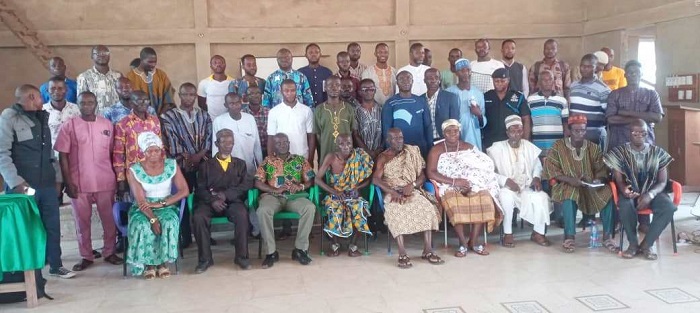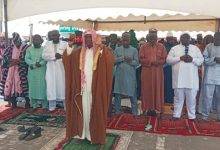
Research has shown that Lack of institutions to regulate cattle herding activities in the Asante Akim North Municipality and Sekyere Afram Plains in the Ashanti Region was one of the major causes of conflict between the farmers and the Fulani herdsmen.
Also, lands were allocated by the indigenes without proper documentation and rules to restrict the herders from grazing in areas not meant for that purpose.
These are some of the highlights of preliminary findings on the “Access and Authority Nexus in Farmer – Herder Conflicts” project shared on Wednesday at a stakeholders’ forum held here at Drobonso, capital of Sekyere Afram Plains.
The findings of the five-year project, which commenced in 2019, showed that most households were willing to resort to dialogue to resolve the conflicts, with its attendant effects being loss of lives and destruction of crops.
The studies were carried out by the Kwame Nkrumah University of Science and Technology in partnership with University of Energy and Natural Resources, University for Development Studies, University of Copenhagen, and funded by DANIDA.
The research project was conducted to find the causes and the possible solutions to mitigate the recurring farmer-Fulani herders conflicts in Asante Akim North Municipality and Sekere Afram Plains District
According to the Global Terrorist Index report2019, farmer-herder conflict is the 11th deadliest organised terror in the world.
The Project Leader, Professor Boateng Kyere, KNUST, in an overview said the preliminary findings had offered “useful information” to be used to help resolve or minimise the conflicts.
He said that was not the end of the journey in finding lasting solution to the farmer-herder conflicts, “we will continue to be asking the questions and getting the answers” to help resolve the conflict and bring about peace in the areas.
Prof. Kyere said the findings from the studies had a wider implications for other farmer-herder conflict that was also widespread in five regions in the North, Bono, Bono East, Eastern and other parts of the West Africa sub-region.
The research findings were shared by Dr Daniel Kojo Leon Brenya, Alhassan Issah Suhiyini, Vincent Kusi-Kyei, all Doctor of Philosophy(Ph.D) Fellows, KNUST, and Dr Frank Agyei and Dr Lawrence Brobbey, who are also researching into the National Ranching Policy, as part of their post doctorate studies at KNUST.
The findings showed that in the Asante Akim North(Agogo), between 2006 and 2018, 70 lives were lost,over 600 cattle killed and there was 50 percent reduction in agriculture production rising from the perennial violent conflicts, triggered by the destruction of crops by cattle and lack of compensation.
According to the findings from the Asante Akim North, there was peaceful and cordial relations between the herders and the indigenes when the first four herders came to the area in 1990.
However, relations became acrimonious and tensed from the year 2000 when there was growing demand for land for cattle business largely by “burgars” in the area, resulting in frequent clashes between the farmers and the herders.
It has been established that the cattle population in the Asante Akim North grew from 2,566 in 2010 to 31,000 in 2017.
FROM SALIFU ABDUL-RAHAMAN, DOBRONSO







